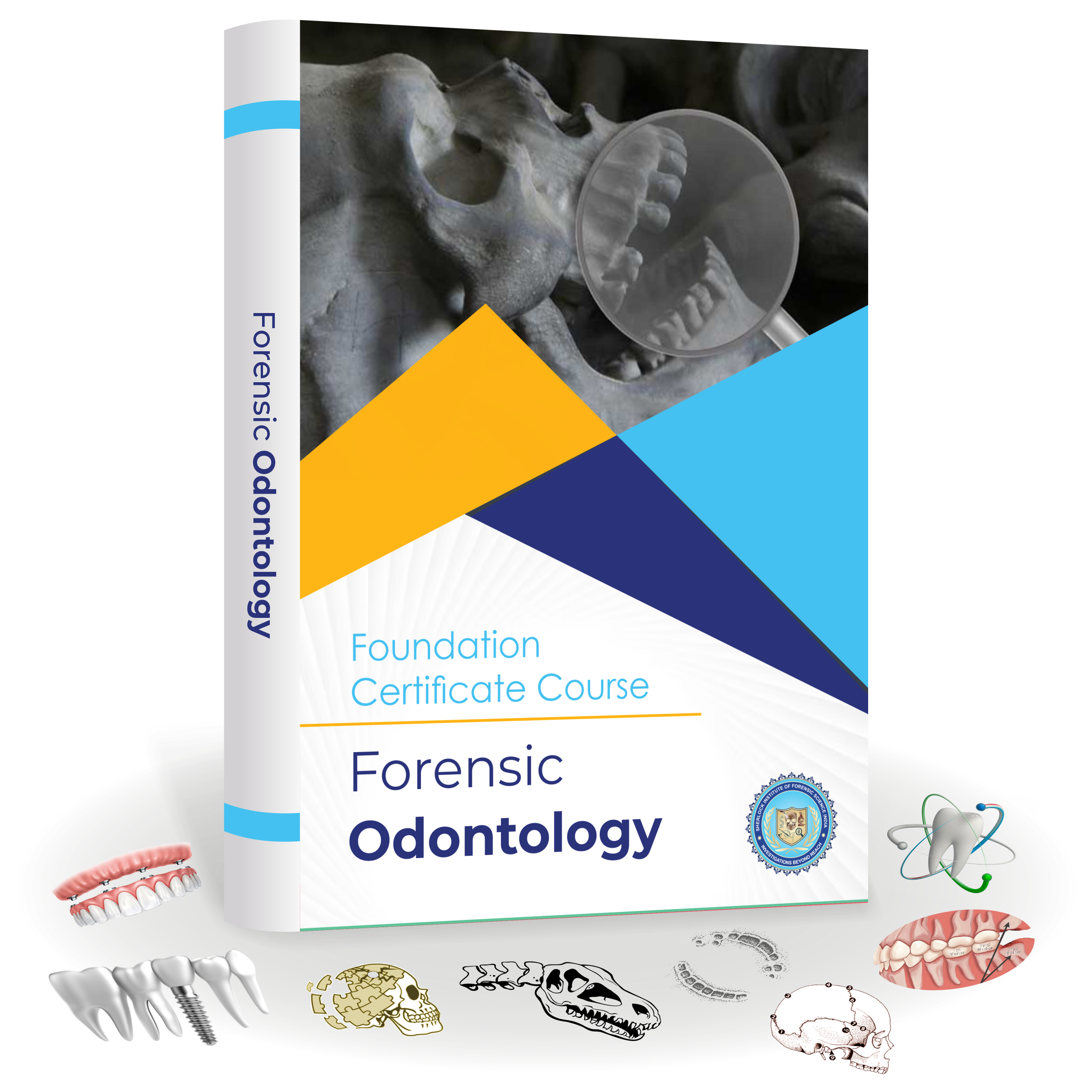The Forensic Odontology course at SIFS India is incredible! A distinctive learning journey, expert assistance, and unique case studies.

Certification
Foundation Course Certificate
Mode of Study
100% Online Start now and learn from anywhere
Learning Hours
15 hours of Video Sessions
Learning Medium
English
Learn Forensic at Your Own Pace, Master at Your Own Time!
Unlock Your Potential with Self-Paced Learning!
Learn Anytime, Anywhere
No schedules, no pressure! Study at your convenience
Go at Your Own Speed
Master concepts without rushing or slowing down
Full Access to Course Materials
Revisit lessons whenever you need
Expert-Led Content
Gain industry-relevant skills from top instructors
Perfect for Professionals & Students
Balance learning with your lifestyle
Affordable & Cost-Effective
No travel, no extra expenses, just pure learning!
Earn a Recognized Certification
Boost your resume and career prospects
Join Thousands of Successful Learners Today!
Enroll Now & Take Control of Your Learning Journey!
Forensic Odontology involves using dental science to examine teeth-related evidence found at the crime scene to aid in legal investigations. The online Forensic Odontology Foundation Certificate Course by Sherlock Institute of Forensic Science (SIFS India) is structured to provide you with a solid foundation on your journey to gain dental expertise in solving complex crimes and meet the demands of the justice system.
The pre-recorded course modules are taught by experienced instructors and forensic experts of national and international fame. This course offers you an opportunity to gain theoretical knowledge and methods to apply to real-world cases, thereby contributing to the legal process. You will learn to examine dental records, human teeth development, do bite mark analysis, numbering systems, understand the human identification techniques and problems for cases involving mass disasters, technology and software usage in mass fatality incidents, types of child abuse, and legal considerations.
The course includes several case studies and research material to broaden your knowledge. So whether you are an aspiring forensic scientist or dental professional looking to enhance your expertise, this foundation course in forensic dentistry will equip you with valuable skills and is your gateway to a rewarding career in forensic science, law enforcement, and legal investigations. So, join us on this exciting journey into the world of forensic odontology and enhance your understanding of this vital field.
Become Proficient to Answer:
- What is the role and significance of forensic odontology, and what are the qualifications required to become a forensic dentist?
- How does forensic odontology contribute to medico-legal cases, and what potential does it hold for future research?
- What are the stages of human tooth development, and how does understanding tooth eruption contribute to forensic odontology?
- How is occlusion in the dentition stages developed, what are the factors that can affect it, and what is its clinical significance?
- What are the different notation systems used in forensic odontology, and how are they employed for age estimation?
- What are dental anomalies, and what significance do they hold in the field of forensic odontology?
- How does a forensic odontologist play a role during disaster victim identification, and what challenges are faced in such situations?
- What techniques are involved to compare antemortem and postmortem dental data, especially in mass fatality incidents?
- How can dental records, palatal rugae, and habits be utilized in identifying victims in mass disaster cases?
- What techniques are used to conduct bitemark analysis, including recognition, collection, and preservation?
- What are the clinical symptoms and types of child abuse, and how can dentists play a role in documenting and reporting suspected cases of abuse?
Learning Outcomes:
Dental Identification Basics: You will gain a solid grasp of dental identification techniques, enabling you to analyze dental records and contribute to the identification of individuals in legal and forensic contexts.
Bite Mark Analysis Skills: You will be able to acquire skills to identify and analyze bite marks, teeth anatomy, and understand their significance in criminal investigations and legal proceedings.
Forensic Odontology Principles: You will gain deep insights about the foundational principles and ethical considerations in forensic odontology, including how to collaborate with other forensic experts and law enforcement agencies for effective teamwork.
Human Identification in Mass Disasters: You will be equipped with the knowledge to do dental identification in mass disaster situations to identify human remains using dental records.
Integrating Technology Usage: You will know how to analyze digital data and use computer-assisted software to speed up the investigation process.
Course Details:
Fee | National: 1770 INR (1500 INR + 18% GST) International: 50 USD |
Duration | 1 Month |
Eligibility | 12th Passed |
Session Timing | Learn at your own Pace |
Payment Details:
International Student : PayPal: forensicdocument@gmail.com
Account Details for National Student
Bank Name - ICICI BANK
Acc. Name - SIFS INDIA PVT. LTD.
Account No. - 663505500086
Type - Current
IFSC Code - ICIC0000160
Address - ICICI Bank, H-4, Model Town -III, New Delhi - 110009









